This Opening Ceremony was chaotic and surreal but forget the critics – not even the torrential downpour could douse the joy of the return of the Olympics, writes OLIVER HOLT
The athletes set off from under the Pont d’Austerlitz in a fleet of all shapes and sizes.
They sailed in speedboats, water taxis and sloops past cardboard figures of Madame Pompadour, half submerged in the Seine.
They passed under bridges full of acrobats and dancers, and past guitarists high on balconies, as if they had been transported straight from the set of Mad Max: Fury Road.
The rain fell harder and harder, soaking the pianist, dressed in his sequined shirt, as he sat at his grand piano on the Pont Royal. Marie Antoinette’s severed head also got wet as it appeared through a window overlooking the river.
With every chaotic minute, the opening ceremony of the Paris Olympics felt more and more like a film by Alain Resnais, Jean Cocteau or one of the great French surrealists.
Nothing could extinguish the joy felt at the return of the Olympic Games during the opening ceremony
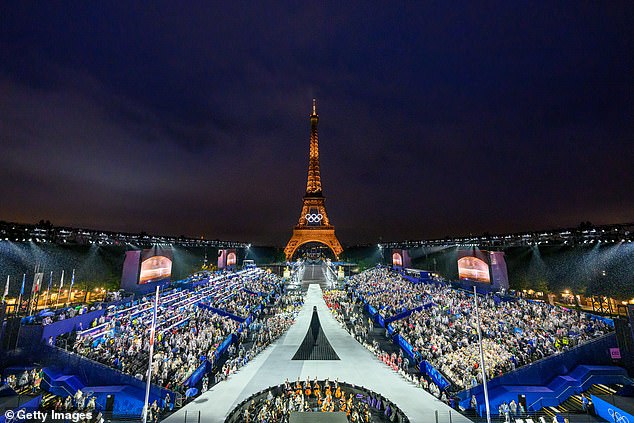
After the pandemic-ridden Tokyo Games, the spectacle in Paris was a new breath of life
And as Tom Daley and Helen Glover held aloft their Union Flag on the double-decker tourist boat allocated to the TeamGB delegation, and Andy Murray and the rest of the team waved wildly to the spectators, it was clear that nothing would dampen the joy of the return of the Olympic Games.
After the devastating pandemic at the Tokyo Games three years ago, a Games without an audience and without much of their soul, this was a breath of fresh air.
And although the rain did not stop, the boats carrying the beaming, cheering athletes, so happy to be Olympians at the start of two weeks of the greatest sporting spectacle in the world, ploughed through the turbulent waters of the Seine like their chariots of fire.
It is 100 years since Paris last hosted an Olympic Games, the Olympic Games of Harold Abrahams and Eric Liddell, the Olympic Games immortalized by Hugh Hudson’s film. And the passion and joy of the athletes lit the way from one century to the next.
Somehow, the Games survived the first day. It wasn’t easy. It started with a series of arson attacks that paralyzed France’s rail network and caused widespread disruption, and continued with French President Emmanuel Macron receiving an icy reception as he boarded his boat for the parade.
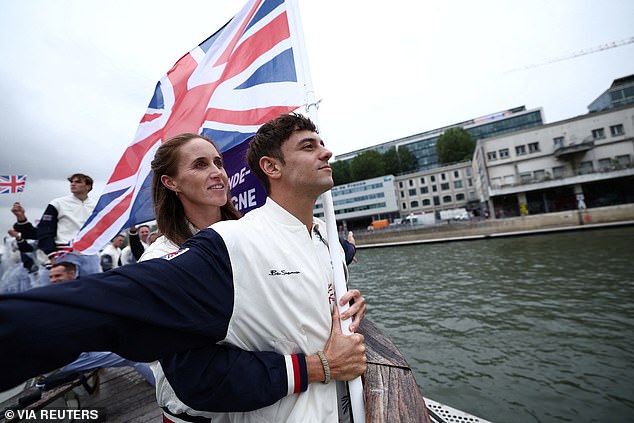
The rain didn’t stop, but boats carried cheering athletes across the River Seine
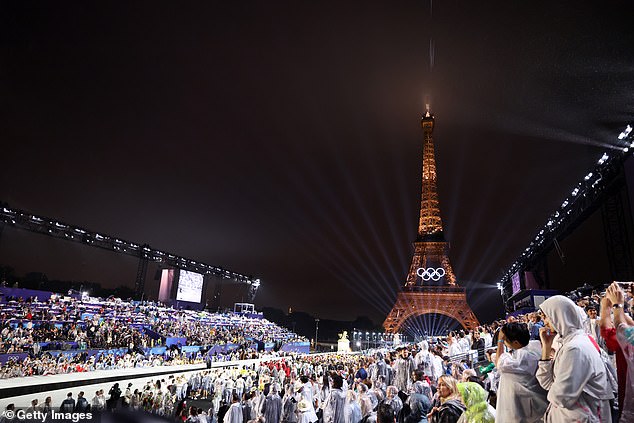
This year’s Olympic Games have survived their first day and the world’s biggest sporting show is now underway
None of that mattered. Not really. Because what a Games it will be. An Olympic Games where Murray, one of Britain’s greatest athletes and greatest Olympians, will step onto the red clay of Roland Garros and play the final sets of his gilded career.
The Olympic Games where Simone Biles, the most decorated gymnast in history, will try to find her way to redemption with somersaults and jumps after the trauma she suffered in Tokyo when an attack by the ‘twisties’ ruined her Games.
The Olympics where Daley continues his Peter Pan career, where Keely Hodgkinson becomes TeamGB’s golden boy if she wins the women’s 800m, where athletes in the 48 events in athletics receive $50,000 for winning a gold medal, and where Josh Kerr attempts to become the next Sebastian Coe by winning the men’s 1500m.
It is the Olympics that will put a damper on the once glorious career of Charlotte Dujardin, the Olympics that will perhaps declare Antoine Dupont the greatest rugby player ever, the Olympics where Noah Lyles will attempt to become the face of the Games by winning the men’s 100 metres and becoming Usain Bolt’s successor as the saviour of athletics.
We should not expect too much from the Games, except for the sport. The IOC likes to portray itself as the conscience of the countries that have hosted the Games over the decades. It likes to suggest that it can tame the warmongers, end greed and alleviate suffering, all by harnessing the purity and innocence of its army of athletes.
The IOC is as conflicted and compromised as all the nation states it claims to be a moral compass for. That’s why Russian athletes will compete here in Paris despite what’s happening in Ukraine, and that’s why 11 Chinese swimmers will compete here despite being part of a larger group that failed a doping test.
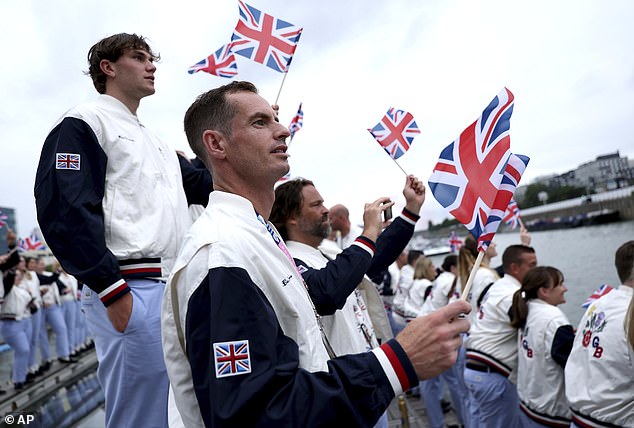
Andy Murray will step onto the Roland Garros clay court and play the final sets of his golden career
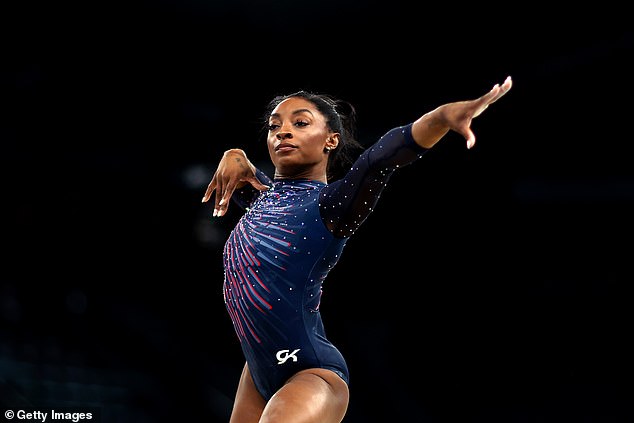
Simone Biles, the most decorated gymnast in history, will try to find her way to redemption through jumping
The Olympic movement does not act as an agent to force nation states to make the world a better place, even if that is what they would like to do. The reality is that nation states use the Olympic movement as a propaganda tool. That is how the power dynamic has always worked and that is how it continues to work.
So even among the few Olympics I covered, the 2008 Beijing Olympics may have heralded the beginning of the Chinese Century, but they did little to increase openness or reduce human rights abuses.
The London 2012 Games did little to improve obesity rates in the UK, as everyone had hoped. They gave us a good two weeks of feeling about ourselves, but that quickly evaporated. Britain is more divided and polarised than it was 12 years ago.
The 2016 Games in Rio did little to improve the lot of the impoverished majority living in the favelas that plague the city. The new metro line to Barra di Tijuca, built to prepare for the Games, benefited the rich more than the poor.
None of this makes the Olympics bad. It just reminds us to put some of the claims into perspective. It is a force for good, but it is not a permanent cure for anything. It will not solve any of the problems France has in its relations with Islam or its flirtations with the far right. The Games are not a panacea.
Now that the Opening Ceremony is over, we can see the Olympic Games for what they are: a grand sporting spectacle that will unfold before our eyes, featuring heroes and villains, drama, tears, laughter, joy and achievements you never thought possible.
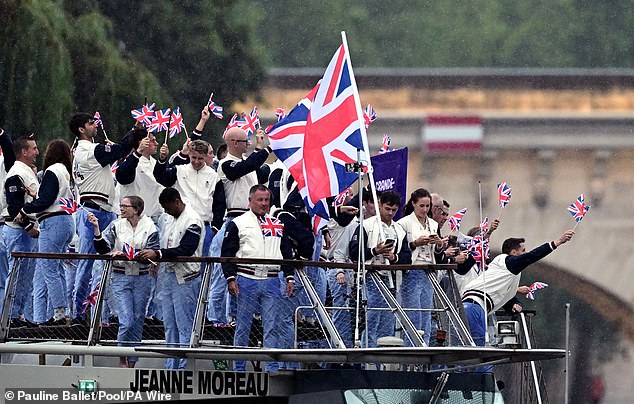
For two weeks, Paris will feel like an enchanted city where everyone comes together
For two weeks, Paris will feel like an enchanted city where everyone comes together, just like London in 2012. Because ultimately, the Olympics are about athletes and their amazing stories and their superhuman determination and their joy and their despair. And their chance at immortality.
It’s a 20-minute journey from Gare St Lazare in central Paris to the station known simply as Le Stade, on the capital’s northwestern edge. There, almost swallowed up by the modern suburbs, lies the Stade Yves-Du-Manoir, once known as Stade Olympique de Colombes.
This is where the Games took place 100 years ago, providing the backdrop for Chariots of Fire. Although much has changed, the Tribune d’Honneur, the main stand, and the stone steps and concrete steps are still the same.
The stadium hosts the hockey events of the Olympic Games and on Thursday afternoon a women’s practice match between Belgium and Argentina took place, but the cries of history still echo through the ages.
A blue carpet covers what used to be the final straight of the cinder track that ran in front of the main stand. If you sit in one of the seats and look down, you can see Harold Abrahams sprinting across the track in front of you. He is still one of three Britons to have won gold in the men’s 100 metres final.
You see Eric Liddell, the devout Christian who refused to run the 100 meters because the heats were on Sunday, running down the straight, head back and arms in the air, as he wins gold in the men’s 400 meters.
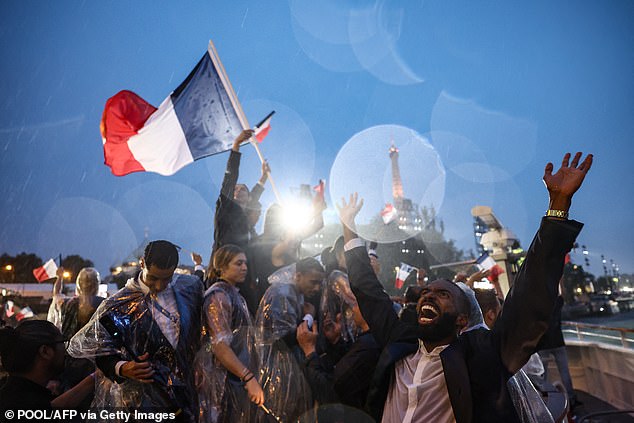
Countless Olympians sailed through the city on their way to immortality and a dream
Perhaps it’s easier to imagine, because they’ve been immortalized in movies. But it’s not just through Chariots of Fire that we commemorate the achievements of the men and women who made their names in Olympic history.
Paavo Nurmi won the 1500m and 5000m and two other gold medals in cross-country at those 1924 Olympics. His name stands even higher in the annals of Olympic history than Abrahams or Liddell.
That’s where those Olympians on those boats on the Seine were sailing through the rain on Friday night. They were sailing past the security circus and the train chaos and the controversies about Russian athletes and Chinese doping and Dujardin and her penchant for wielding a whip.
They sailed towards immortality, towards belonging to the same club as heroes such as Abrahams, Liddell and Nurmi, Usain Bolt, Cathy Freeman, Michael Phelps, Murray, Steve Redgrave and Biles.
They were sailing towards a dream, the same dream that athletes pursued a century ago in the stadium in Colombes and that they will pursue over the next 16 days in the City of Light.
